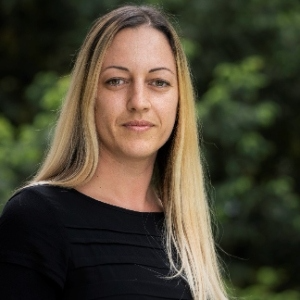Title : Analyzing agricultural land conditions with non-invasive GPR and thermal UAV surveys
Abstract:
One of the greatest burdens on the groundwater quality comes from diffuse pollution in agriculture. Precision agriculture reduces its impact on groundwater and ensures a more sustainable water and fertilizer usage. For correctly implementing precision agriculture procedures, knowledge of the geological settings, soil properties and dynamics of hydrogeological processes is required. Traditionally, the data on agricultural fields are gathered from individual points, e.g. from soil profiles, moisture probes, piezometers etc. However, these only provide information on pedological and groundwater characteristics in points, where the data is collected. Due to the vastly heterogenic hydrogeological and soil conditions in nature, this sometimes does not reflect the actual state of the surveyed area. As adding new points would mean additional costs as well as increased interference with the environment, we applied non-invasive methods to try and gather data on entire agricultural fields. We combined the traditional point methods with the quick and non-intrusive ground-penetrating radar (GPR) measurements as well as thermal UAV imagery.
The GPR results provide information on the changes in the shallow subsurface, which allows us to identify areas of higher/lower signal attenuation, correlated with areas containing more/less water. This way we can spatially determine areas prone to water and nutrient retention as well as areas with faster water and nutrient runoff. In is also possible to track main soil horizons and the topsoil layer thickness throughout the entire field. The thermal UAV images also provide spatial information on changing field conditions, where higher soil temperatures correspond to drier parts of the field, while lower soil temperatures show areas with higher water content. Both GPR and UAV surveys are carried out on empty fields before crop growth to ensure the vegetation does not influence the imagery. Based on their results, the locations of soil profiling and installation of dielectric probes (for measurements of water content in soil) are determined. Together these point data, spatial GPR and UAV data provide information on the changing soil characteristics across the entire agricultural field, which can contribute to the optimization of precision agriculture procedures.
This research is funded by the Slovenian Research and Innovation Agency ARIS (research core funding No. P1-0011 and operation no. J1-4412).
Audiance Takeaways:
- The audience will learn about new, non-invasive, methods used in agricultural land surveys
- They will also learn about the importance of understanding geological conditions and their variation in the field
- This methodology can provide users with continuous spatial information on soil parameters in the field
- Determining areas of water retention and faster water runoff within a field can help reduce the use of water for irrigation and excessive use of fertilizers, which could pollute the groundwater
Implementing these methods could improve precision agriculture practices.



